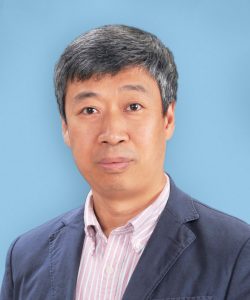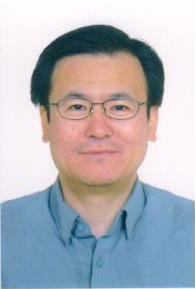More keynote speakers are being invited, and all the keynote speakers are sorted by the family name.

Prof. Baoming Bai
Title: Coding and Modulation for Machine-Type Communications
Bio:
Baoming Bai (S’98–M’00–SM’18) received the B.S. degree from the Northwest Telecommunications Engineering Institute, China, in 1987, and the M.S. and Ph.D. degrees in communication engineering from Xidian University, China, in 1990 and 2000, respectively. From 2000 to 2003, he was a Senior Research Assistant at the Department of Electronic Engineering, City University of Hong Kong. Since April 2003, he has been with the State Key Laboratory of Integrated Services Networks (ISN), School of Telecommunication Engineering, Xidian University, China, where he is currently a Professor. In 2005, he was with the University of California, Davis, CA, USA, as a Visiting Scholar. In 2018, he spent one month as a Senior Visiting Fellow at McMaster University, Ontario, Canada. Dr. Bai co-authored the book Channel Coding for 5G (in Chinese, 2020). His research interests include information theory and channel coding, wireless communication, and quantum communication.
Abstract:
Internet of things (IoT) is a typical scenario of massive Machine-Type Communications (mMTC), which is characterized by short packet transmission and usually requires low energy consumption for codec and modem. In this talk, we will discuss several classes of channel codes with short block length (including classical algebraic codes, LDPC codes, binary and nonbinary Polar codes) for IoT applications, in terms of design, performance and low-complexity decoding algorithms. Furthermore, we will explore the power- and bandwidth-efficient modulations, noncoherent detection (for low-power receiver), and their performance limits.

Prof. Guizhong Liu
Title: Few-Shot Image Classification via Contrastive Self-Supervised Learning
Bio:
Guizhong Liu received B.S. and M.S. degrees in computational mathematics from Xi’an Jiaotong University, Xi’an, China, in 1982 and 1985 respectively, and a Ph.D degree in mathematics and computing science from Eindhoven University of Technology, Eindhoven, The Netherlands, in 1989. He is currently a Full Professor in the School of Information and Communications Engineering, Xi’an Jiaotong University. His current research interests are concentrated on machine learning and artificial intelligence methods and their applications to sensing, decision and control.
Abstract:
Most previous few-shot learning algorithms are based on meta-training with fake few-shot tasks as training samples, wherein large labeled base classes are required. The trained model is also limited by the type of tasks. We propose a new paradigm of unsupervised few-shot learning to repair the deficiencies. We solve the few-shot learning tasks in two phases: pretraining a transferable feature extractor via contrastive self-supervised learning, and training a classifier using graph-aggregation, self-distillation and manifold augmentation. Once pretrained, the model can be used in any type of tasks with a task-dependent classifier training. Our method achieves state-of-the-art performance in a variety of established few-shot tasks on the standard few-shot visual classification datasets, with an 8-28% increase compared to the existing unsupervised fewshot learning methods.

